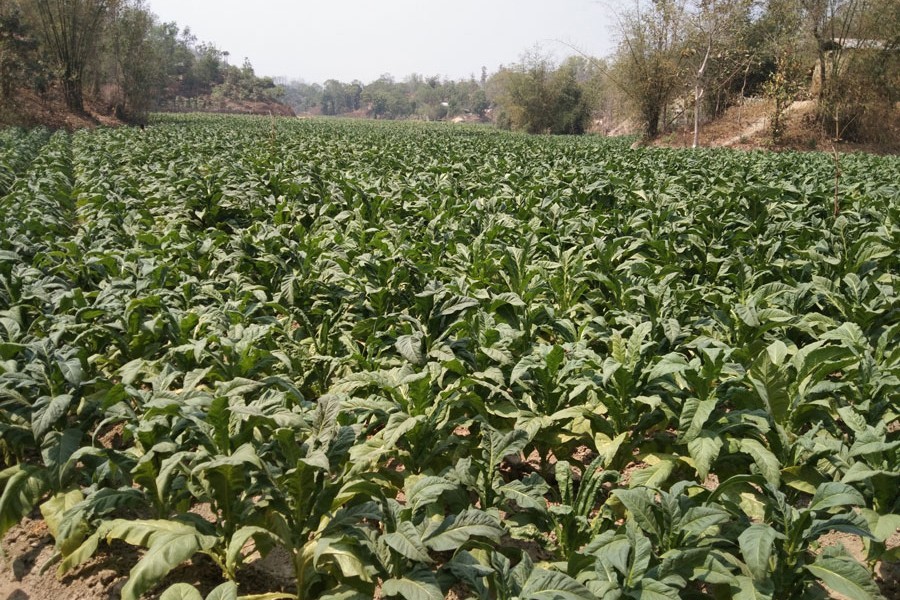Tobacco farming is increasing day by day in the villages of Cox's Bazar.
This new trend of cultivation is not only making the soil lose its fertility but also posing threats to the environment and biodiversity of the district, alleged environmentalists.
Tobacco-farming also increases carbon dioxide emissions, along with the biggest damage being dealt to the soil fertility as the tobacco crops deplete soil nutrients by taking up more nitrogen, phosphorus and potassium than any other major food crops do, they said.
"Excessive use of pesticides and fertilisers on tobacco fields is increasing river pollution. Besides, the forest and homestead trees reserved for burning tobacco are being cut down," one of them added.
According to Department of Agricultural Extension (DAE), tobacco has been cultivated in 2,500 hectares of land in Cox's Bazar.
The farming is now going on in full swing in Chakaria and Ramu of Cox's Bazar as well as Lama, Alikadam and Naikhyangchhari upazilas of Bandarban, said a DAE official.
Farmers are getting involved in tobacco cultivation in the dry season every year due to tobacco companies' various tempting offers, said locals.
According to a number of farmers, they cannot give up tobacco cultivation although they know that it is harmful to health and environment.
Nazrul Islam, 45, a tobacco farmer, said, "I have lost my interest in rice cultivation as I don't get a fair price. I know tobacco cultivation is harmful to the soil but it yields profit."
Abu Noman Mohammad Ismail, chairman of the Kachhpiya Union Parishad in Ramu, said, "Despite environment and public health risks, farmers have not been able to give up tobacco cultivation due to their loans and lucrative offers from tobacco companies."
Ashish Kumar, Assistant Agriculture Officer of DAE, Cox's Bazar, said the DAE authorities are not aware of the fact that tobacco farming is now going on in the reserved forestlands and on the banks of the Matamuhuri and Bankkhali rivers.
Ekhlach Uddin, Cox's Bazar Deputy Director of the DAE, said, "We make farmers aware of tobacco cultivation and its harmful effects. However, they do not seem to come away from it."


